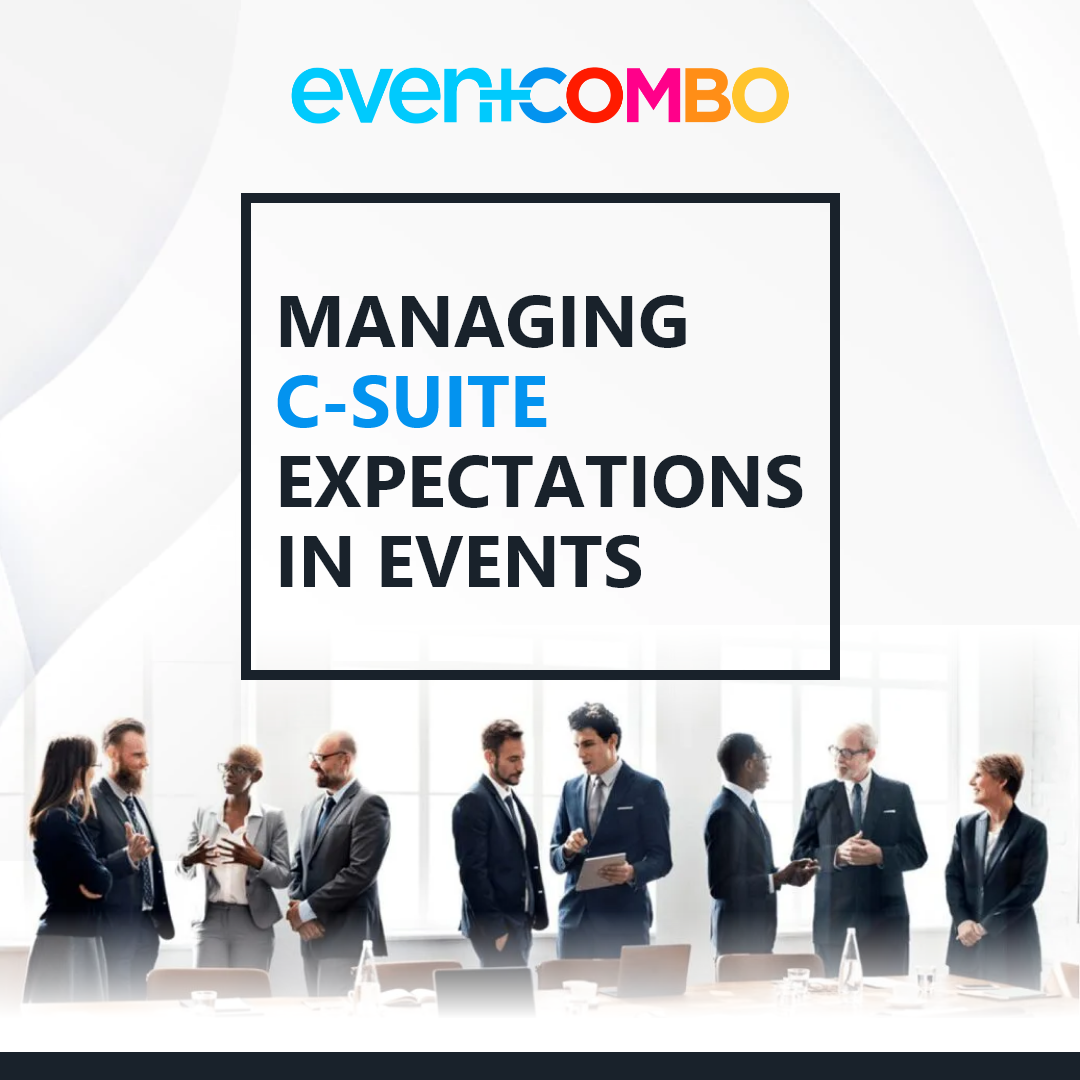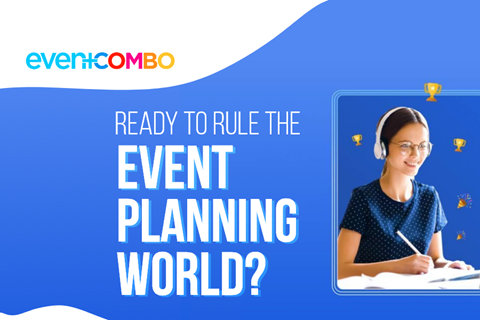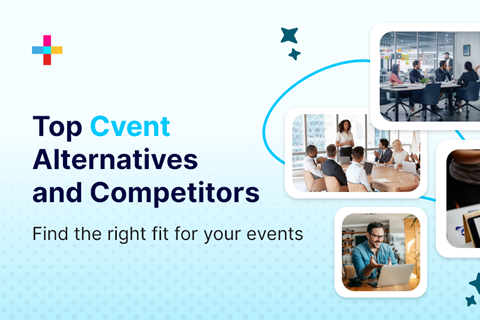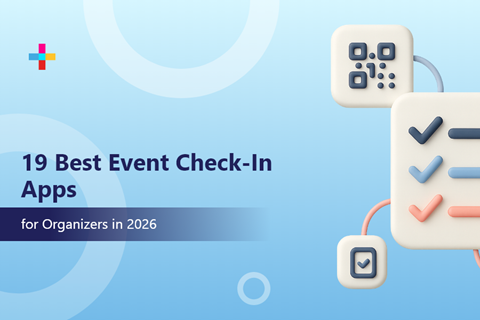

The usual waterfall of the series of activities leading to the main event is relative to many other things. While figuring out the target audience, the objective of creating a laser-focused strategy for addressing C-suite attendees' expectations is often diluted. Integrating multifarious agendas catering to multiple audiences is crucial, but reaping real results from the event depends mainly on the engagement of the C-suite.
Why the Spotlight on C-Suite Attendees?
The whole buzz around the C-suite sometimes overwhelms and becomes daunting. C-suite are the most sought-after, most complicated to attract, and challenging to keep engaged. Given their leadership position, they are time-strapped and have calendars pre-mapped for months. Also, being THE decision makers, the outreach of an event heavily depends/focuses on the executive bench.
It is a common understanding that networking is a 360-degree space and the C-suite can move the needle for your business which makes them one of the most relevant attendees for your event.
Decoding Expectations of C-Suite Attendees
‘Value’ is the foremost attribute execs look for in everything under the sun, especially in exchange for their time. Until they are sure to derive worth from an event, they wouldn't step out (or switch screens in case of a virtual event). Here are some insights on C-suite attendee expectations and how to manage them.
1) Simplify the Event Experience: Time is money. An undeniable reality for the particular TA, they expect fluid movement in an event from start to end. The complete event cycle must be convenience-led, from a quick registration process to hassle-free entry and easy in-event navigation. Establishing credibility at the very onset is essential to get them on the attendee bandwagon. It is also necessary to assure C-suite attendees that the data submitted by them is secure. The event's program should be covered in a precise manifesto for the C-suite to identify and be able to make decisions on which rooms, sessions, or booths to visit.
2) Networking: A successful business has many cornerstones, and networking is one of them. Executives are inclined towards connecting with like-minded individuals who can work as catalysts for business and marketing, and help them gain knowledge and discover new technical competencies. Personal and intimate event formats like panels, roundtables, and exclusive forums are preferred over traditional event practices due to opportunities to interact in interpersonal space with peers. The focus of networking should not be limited to the event but also on forming connections that grow post-event.
3) Personalized Invitations: A recent survey revealed that more than 60% of executives decide to attend an event based on how personalized the invite and communications are. A marriage of strategy and design is required to showcase the keynote speakers, a snippet of topics/agenda, and key takeaways using visualization and graphics in the invitations to draw them to the event. If your email or invite is not good enough for the CEO to click/tear open, they are less likely to be stimulated to attend the event. Managing the time window between impact and conversion is crucial and has to be anchored with a careful pro-C-suite approach. For that, hyper-personalizing every detail of the invite, like URL, email design and content, attendee designation, and maybe even their picture, will prevent pawning off the invite to other staff members.
4) Thought-Provoking Content: The C-suite are in constant pursuit of riveting ideas, and nothing puts them off more than blatant sales pitches, especially at an event. The content of the event is expected to address industry problems, emerging solutions, and evolutionary technologies. They like listening to panelists who share foresight into the future and lead conversations and discussions that drive innovation. Outcome-led data-driven storytelling, providing unconventional and eccentric solutions, can initiate long-term, post-event relations with executives.
5) Relevancy: The aim is not just to have C-suite invitees on board but create an inclusive and value-adding experience for them. Cross-industry C-suite should be invited if the event agenda, speakers, and other guests are relevant. The event's quality assurance is judged based on its relevance to products, technology, innovations, speakers, and other executive attendees. The content must enrich their thought process with meaningful information and knowledge to make the event important enough for them.
6) Relatability: Engagement with peers and co-executive leagues is also a major draw for any event. The presence of attendees or speakers ranking in industry leadership with opportunities for meaningful interaction with them is what gets the C-suite to attend the event. Having a few executives and thought leaders from the industry as speakers or contributors can significantly impact the C-suite attendee turnout. It’s crucial to design an event by:
a) Aligning the event strategy with the deliverables of speakers and contributors
b)Co-create agenda that caters explicitly to C-suite, making the event relatable from their perspective
Executive positions in the management hierarchy are earned based on role-specific skills of leadership, critical thinking, collective experience, and adaptability. Such professionals look for augmenting experiences that can foster their proficiencies. Delivering on the expectations of C-suite attendees at an event doesn't just add to the success of one event but also ensures their attendance in future events.
Looking for the right technologies to impress your C-suite event attendees? Explore https://bit.ly/3ek2bif.

Professional certifications for event planners do more than provide a solid foundation in the field; they offer valuable exposure to the dynamic world of event planning and insights from prominent industry experts.

Choosing the right event management platform is vital for event professionals navigating the growing demand for in person , virtual, and hybrid events. Modern planners need solutions that offer robust features,...

Attendees don't notice good check-in. They only notice bad check-in. And planners know check-in is the first moment where their behind-the-scenes work gets exposed.